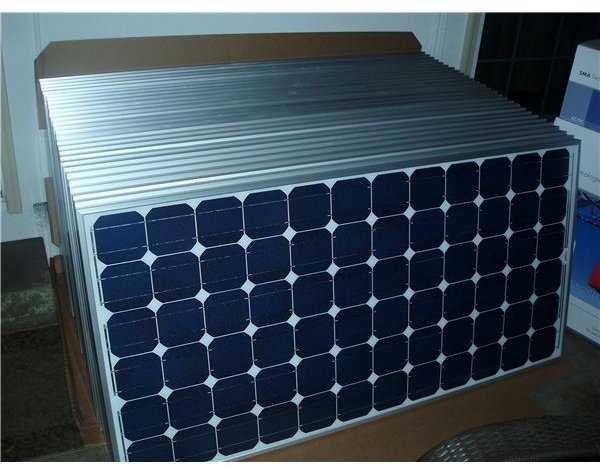Can Solar Panels Power a Computer Lab?
Can Photovoltaic Solar Panels Power a Computer Lab?
Can photovoltaic solar panels power a computer lab? Of course they can. Photovoltaic cells or solar cells convert electricity directly into electrical energy. They’re a different type of technology from active solar collectors - which give heat, not electricity.
Each photovoltaic solar cell only produces a small amount of electricity. But the applications for solar technology are incredibly varied and apparently only restricted by the user’s imagination. You can start small and power up your lap top using a Voltaic backpack. Or photovoltaic cells can be joined or wired together in a panel or fixed onto a rack that tracks the sun for the most efficient production of electricity.
Clusters of computers in labs of varying sizes are already being powered by solar panels across the globe - including labs in public buildings such as libraries, schools, colleges and universities as well as community facilities that offer access to the Internet.
The First Solar Powered Cyber Cafe
Solar-powered micro projects can provide hospitals and schools with access to ICT equipment so that they can develop opportunities for education, personal and economic development - allowing communities in Africa for example, to benefit from low-cost, low-energy internet and IT access.
The charity “Computer Aid International” has built the first solar powered cyber cafe inside a shipping container. The cyber cafe container houses a fully functional computer set up, compromising a client network of eleven monitors running off a standard Pentium 4 PC. Solar panels have been fitted to power the container, which will be located over 70km from the closest tarmac road.
The solar cyber cafe built inside a a shipping container has been sent to Macha in Zambia to provide the community with internet access through Africa’s largest rural Wi-Fi network. Appropriate technology like this can be useful to nations which cannot afford to build expensive nuclear and fossil fuel power plants and electric-line transmission systems.
Can Solar Panels Power Large-Scale Computer Labs?
Can solar panels power computer labs on a broad scale? There are advantages and disadvantages to solar energy - and complex historical, economic and political reasons why the take up and deployment of solar technology has in the past been relatively slow.
However, affordable solar technology to power computer labs is now on the market. A typical “Mobile Solar Power Station” retails at around $4000. For this investment the small-scale buyer gets a self-contained solar power system that provides AC power to run a desktop and monitor is designed to be deployed anywhere where AC 120 watt power is not available. The panels are usually mounted to a pole set into the ground.
A large-scale computer lab however may involve a server and most computers take upwards of 60 watts each - which would require considerably more than a $4000 investment. So is a large-scale photovoltaic installation for a computer lab a workable business move?
It’s already happening. Some of the largest and most innovative companies in computing have pioneered solar panels for large-scale lab use. Microsoft’s large scale solar investments were quickly followed by developments at the Googleplex site in Mountainville California where 9212 photovoltaic panels supply 1.6 megawatts of electricity (about 30% of peak electricity needs on this site). Google claims this was an ’easy’ business decision to make with only a seven year pay-back time on their investment. The company are currently considering an energy-mix solution to supplement output and utilize other renewable sources such as geo-thermal power.
This post is part of the series: Green computing and the triple ‘crunch’
With the credit, climate and energy crisis (the triple ‘crunch’) - we are challenged by the need to reduce carbon emissions and improve the way we use energy-intensive information technologies. What is the anticipated impact of green computing? This series offers positive and educational insights
